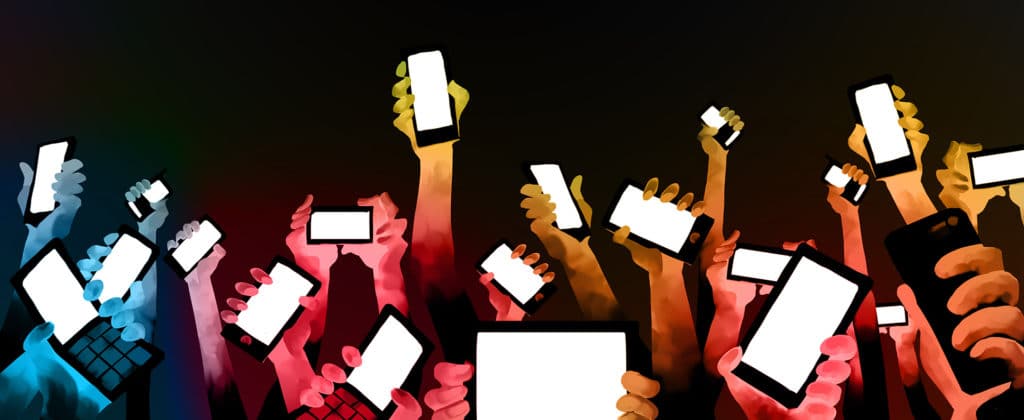On February 22nd, the Togolese people went out to vote as part of their civic responsibility. Less than 48 hours after polls ended, provisional results from the country’s Electoral Commission saw the re-election of the incumbent, President Faure Gnassingbé, with 72% of votes, while the main opposition leader, Agbéyomé Kodjo received 18%. President Gnassingbe’s evident victory in the 2020 elections will extend his family’s dynasty for another five years, as he came into office after the death of his father in 2005. Dissatisfied with the outcome of the election, which many people predicted would be far from free and fair, opposition leader Kodjo has since accused the government of widespread fraud, a charge the president’s office has rebutted.
Something to hide? App blocking, revocation of accreditation of CSO observers, and deportations taint Togo’s presidential elections
Accusations of electoral fraud do not occur in isolation. Measures undertaken by the Togolese government during the elections have given cause for alarm. Authorities cut access to messaging services on election day, and election officials prevented an independent civil society group of observers from monitoring the elections.
These tactics appear to have been part of a well thought-out plan to gag the Togolese people on this important day. A day before voting began, the Chairman of the Commission électorale nationale indépendante (CENI) warned that a shutdown could take place during the election. Low and behold, shortly after the polls closed in the evening of February 22, observation showed that messaging apps were being blocked.
The blocking affected users of Togo Telecom and Atlantique Telecom networks with the exception of Canalbox. It happened despite the call by local and international rights groups through the #KeepItOn coalition urging the government to ensure an open, secure, and accessible internet throughout the election period.
How was the messaging block carried out?
The Open Observatory of Network Interference (OONI) uses free software in its global observation network for detecting censorship, surveillance, and traffic manipulation on the internet. Results from the tests showed that instant messaging applications such as WhatsApp, Facebook Messenger, and Telegram were blocked on two networks: Togo Telecom (AS24691) and Atlantique Telecom (AS37229). All three apps, however, were accessible on the Canalbox (AS36924) network, showing that blocking differed across internet service providers (ISPs) in Togo. The following chart illustrates the results/findings from testing across three ISPs in Togo between February 21-23, 2020.
These findings show that certain mobile operators were targeted for blocking. Authorities have not provided an explanation for the choice of networks for the blocking, but Togo Telecom is state-owned and the operator of Togocel mobile, a widely used network with two thirds of the subscriber base in the country. Logic therefore suggests that the messaging app block targeted the masses.
Stripping accreditation of observers, deporting technical support staff, intimidation
Prior to the elections, on February 18, 2020, CENI abruptly revoked the accreditation of the National Consultation of Civil Society (CSO) of Togo, the main independent observer group. The authorities also expelled the staff of the National Democratic Institute (NDI) who were in the country to provide technical support to the independent CSO observer group. There were reports that the electoral body had denied the Catholic Church accreditation to monitor the elections. In addition, the CENI cancelled the electronic security system at the very last minute. To what end, exactly?
The government did, however, allow some 300 international observers, mainly from the Economic Community of West African States (ECOWAS) and the African Union, into the country to monitor the elections.
If the above incidents were not enough to demonstrate an attempt to manipulate the outcome of the election, shortly after the polls closed, security agents surrounded opposition party leader Kodjo’s residence, on the pretext of ensuring his safety. Under these circumstances, this could be interpreted as an act of intimidation.
What’s next: help us document the interference with digital rights in Togo
Elections are a critically important time for free and open public discourse, and deliberately closing channels for communications interferes with the capacity to get access to information and form opinions — a human right to which we are all entitled. We will keep fighting to ensure that future elections in Togo, and all elections everywhere, are free from internet shutdowns. We hope you join us.
If you are in Togo and were impacted by the shutdown, we encourage you to share your story with us. You can help strengthen our research and advocacy efforts, inform international media outlets about the negative impact of internet shutdowns, and provide evidence for the global battle against censorship in forums like the United Nations.
Kindly use this form to share your shutdown story. Don’t hesitate to reach out to us. We are listening.

